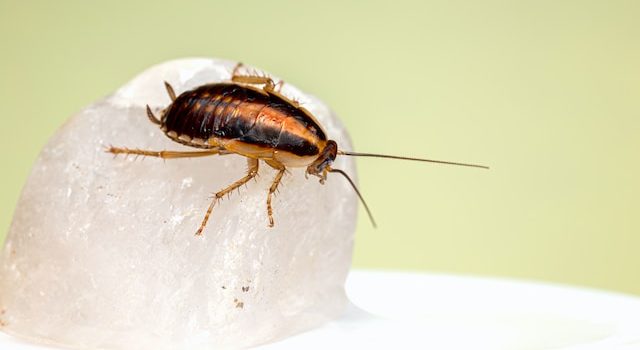
Introduction:
Cockroaches, those notorious insects that have adapted to coexist with humans, pose not only a nuisance but also potential health risks. These resilient pests can trigger allergies and carry disease-causing pathogens, making their presence a cause for concern. In this article, we explore the health risks associated with cockroaches, shedding light on the allergies they can induce and the diseases they can transmit.
- Allergic Reactions:
Cockroaches can be potent triggers of allergies in susceptible individuals. The allergens responsible for these reactions are found in their droppings, saliva, and shed skins. When these particles become airborne and are inhaled or come into contact with the skin, they can elicit allergic responses, ranging from mild symptoms such as sneezing, coughing, and skin rashes to more severe reactions like asthma attacks.
- Asthma and Respiratory Concerns:
For individuals with asthma, cockroach allergens can be particularly problematic. Exposure to these allergens can exacerbate asthma symptoms, leading to increased frequency and severity of attacks. Children, in particular, are vulnerable to the respiratory effects of cockroach infestations and may experience worsened respiratory health, including persistent coughing, wheezing, and difficulty breathing.
- Disease Transmission:
In addition to allergies, cockroaches can act as vectors for various diseases. They can pick up pathogens, such as bacteria and viruses, from unsanitary environments and carry them on their bodies. When they come into contact with food, utensils, or surfaces in our homes, these pathogens can be transferred, potentially causing illnesses in humans. Common diseases associated with cockroach infestations include salmonellosis, dysentery, and food poisoning.
- Bacterial Contamination:
Cockroaches are notorious for their unsanitary habits, as they scavenge on decaying matter and sewage. Their legs and bodies can harbor harmful bacteria, including E. coli and Salmonella, which can contaminate surfaces and food sources. When ingested or come into contact with open wounds, these bacteria can lead to gastrointestinal infections or other health complications.
- Asthma Prevention and Pest Control:
Given the potential health risks associated with cockroach infestations, prevention and pest control measures are crucial. Maintaining a clean and hygienic living environment is the first line of defense. This includes regularly cleaning and disinfecting surfaces, promptly addressing any food spills or crumbs, and sealing cracks and crevices where cockroaches can enter. If infestations persist, seeking professional pest control services can effectively eliminate the problem.
- Public Health Implications:
The health risks posed by cockroaches extend beyond individual households. In densely populated areas, such as apartment buildings or shared housing complexes, the presence of cockroaches can facilitate the rapid spread of diseases among residents. Public health authorities play a vital role in raising awareness, educating communities, and implementing effective strategies to mitigate cockroach infestations and the associated health risks.
Conclusion:
While cockroaches may be reviled as pests, their impact on human health should not be underestimated. The allergens they produce can trigger allergic reactions and worsen respiratory conditions, particularly asthma. Additionally, the potential for disease transmission through bacterial contamination underscores the importance of effective pest control and maintaining clean living environments.
By understanding the health risks associated with cockroaches, we can prioritize prevention and take appropriate measures to mitigate infestations. Through public awareness, responsible pest control practices, and maintaining good sanitation practices.










